2023 PUBLIC POLICY GUIDE

SALT LAKE CHAMBER
A NEW ECONOMIC GEOGRAPHY FOR UTAH
Priority
Page 1 Page 5 Page 10
Page 2 Page 7 Page 11
Page 3 Page 8 Page 12 Page 24
Page 4 Page 9 Page 13
TABLE OF CONTENTS About Water, Energy & Environment Taxes & Regulation
Votes Health Care Small Business Process Housing Transportation & Infrastructure Our Team Business Climate & Economy Workforce & Education Policy Advisory Committees
Dear Fellow Utahns,
We enter this legislative session with vigor to improve our community and the quality of life for Utah families through business advocacy for policies that expand opportunity and prosperity. As the economic shock of the pandemic recedes, new challenges come into focus. The problems we confront are complex and will require our best collaboration to address them now for future success. The Salt Lake Chamber is committed to convening our business leaders to find common ground on policy solutions.
This session brings a renewed emphasis on economic fundamentals in order to get the other challenges right. These revolve around our excellent business climate and setting the stage for economic prosperity across Utah. As part of this backdrop, we must continue to develop environmental solutions and think beyond the Wasatch Front with housing development and remote work.
Energy is a critical focus for the Chamber because its cost and development reach every aspect of our lives. The importance of energy policy will continue to impact costs in the short term; therefore, we must continue to support a transition to an increasingly sustainable and reliable energy future.
Housing also remains a top priority, and innovative thinking around housing policy must drive our agenda to increase units, zoning reform and future infill development. Attention to this area will be necessary to provide a place for our growing workforce.
Last of note is water. The historic drought enveloping Utah and the southwest is bringing the importance of sustainable resource management into focus. The Chamber has a longstanding commitment to policy that improves our natural beauty and environment. Our advocacy for clean air and building water infrastructure to augment conservation is a policy imperative this session.
Similarly, a low tax and regulatory environment will provide the predicate for a robust business landscape capable of solving problems and giving back to the community.
By bringing these pillars together, we will form a strong foundation for our policy success and the opportunity society we strive to create in Utah. Our business community, in partnership with our elected officials, can keep our state at the pinnacle of innovation, governance and shared responsibility to care for one another.


We thank all our civic and community leaders for working together and seeking common ground to overcome our shared challenges. We remain dedicated to providing the space and resources to build one of the most vibrant and engaged communities in the nation. Together we can achieve these worthy goals!
Derek Miller President & CEO
 Dr. Donna Milavetz Board Chair
Dr. Donna Milavetz Board Chair
 Sincerely,
Sincerely,
SALT LAKE CHAMBER OVERVIEW
About
The Salt Lake Chamber is Utah’s largest and longest-serving business association. A statewide chamber of commerce with members in all 29 Utah counties, the Chamber represents the broad interests of the state’s 63,000plus employers, which employ more than 1.4 million Utahns. This includes thousands of Chamber members and their employees. With roots that date back to 1887, the Chamber stands as the voice of business, supports its members’ success and champions community prosperity.
Committable Core Values
Member Centered
We exist to serve our members.
Community
Focused
We contribute to a flourishing community where all have the opportunity to thrive.
Common Ground
We serve as a trusted information source and convener of collaborative community partners.
Free Enterprise We extol and support the virtues of America’s free enterprise system.
Mission
We stand as the voice of business, support our members’ success, and champion community prosperity.
Corporate Citizenship
We cultivate businesses as creators and stewards of the economic ecosystem.
5-Star Accreditation
Vision
We serve as Utah’s premier business leader by supporting statewide prosperity.
The Salt Lake Chamber has been recognized by the United States Chamber of Commerce with a 5-Star Accreditation for its sound policies, effective organizational procedures and positive impact on the community.
Core Competencies
1 SALT LAKE CHAMBER
• Advocate
• Build
• Connect
Policy
Business
Community
STEPS IN DEVELOPING THE SALT LAKE CHAMBER’S LEGISLATIVE PRIORITIES
Policy Committees
Policy-related committees, subcommittees, task forces and councils have three basic policy responsibilities:
• Identify current and emerging problems
• Provide support on policy analysis and communication efforts
• Advise and counsel on issues to recommend to the Board of Directors
Committee & Stakeholder Engagement
In addition to an annual public policy survey of all members, committees and stakeholders work with Chamber staff to update work plans and draft the new year’s Legislative Priorities.
Board of Governors & Chair Review
Public policy chairs, committee chairs and Board of Governors review and then submit the Legislative Priorities to the Board of Directors.
Board of Directors
The final step in approval is from the Board of Directors in November.
Approved
The Public Policy Guide is an action plan for Chamber staff, stakeholders, business leaders and elected officials for the upcoming legislative session.
2023 PUBLIC POLICY GUIDE 2
PRIORITY VOTES
During the Legislative Session, the Salt Lake Chamber’s Board of Directors will designate the top priorities of the business community as “Priority Votes.” These issues are often covered within this Public Policy Guide. Priority Votes are traditionally reserved to 20 or fewer pieces of critical legislation. Additionally, prior to a floor vote on a Chamber priority, legislators will receive the following:

Priority Vote letter on their desk
E-mail notification of the Priority Vote @ @
These notifications will clearly describe the Chamber’s support or opposition to the legislation and a brief description of the impact of the legislation on business.
Legislators and Chamber members can find a full list of Priority Votes and other bills the Chamber is supporting, opposing or tracking at slchamber.com.
Business Champions
The Legislature plays a key role in preserving Utah’s pro-business climate, and every year the Salt Lake Chamber honors legislators who support a pro-economy and pro-business agenda with the title of “Business Champion.” The designation of Business Champion is directly tied to a legislator’s voting record on Chamber “Priority Votes.” Legislators who support and vote in accordance with 80% of the Chamber’s “Priority Votes” on initial passage from the floor receive this award.
3 SALT LAKE CHAMBER
Utah’s enviable business climate and economic strength continue to set the stage for our future success. Decades of strategic planning around economic diversification, innovation and workforce development have placed our state at the top of the economic ladder. These factors shone brightly during the pandemic and helped Utah emerge with the best outcomes overall compared to any other state in the nation. This entrepreneurial spirit and dynamism of the emerging innovation-driven economy will propel us forward over the next decade.
BUSINESS CLIMATE & ECONOMY
Priorities
• We support and advocate for innovation in Utah. We support incentives that promote research and development to keep the state moving forward to be an innovation leader.
• We support policies and innovative programs that support startups and tech commercialization and foster a relationship with business and academia.

• We support sound cybersecurity policies that promote commerce and trade yet protect critical infrastructure.
• We support future growth strategies that work to build a future Utah, such as the Point of the Mountain and the Inland Port Authority.
2023 PUBLIC POLICY GUIDE 4
WATER, ENERGY & ENVIRONMENT
The Great Salt Lake is at an all-time, historically low level. The issues and solutions are complex and these complexities require swift interventions so the lake can be healthy for generations to come.
Utah’s business community envisions an energy future that places Utah at the center of the nation’s energy transition by harmonizing environmental and economic progress to ensure a balanced low-carbon energy future that remains affordable, reliable and sustainable. Utah possesses unique energy advantages that will help the state lead out on environmental, energy and economic progress. The Beehive State’s diversity of supply (oil and gas, coal, wind, solar, geothermal, renewable natural gas, hydrogen and more), energy storage assets and built-in energy demand create an environment where Utah can lead the nation’s energy transition.
Water Priorities
• We support reasonable and costeffective efforts to address critical infrastructure needs in response to shortages on the Colorado River. We support the protection of Utah’s Colorado River allotment and the state’s ability to effectively manage the water supply for future generations.
• We support water usage grants and incentives allowing for water systems to routinely discharge into the Great Salt Lake.

• We support turf buyback programs that enable water-saving measures across the State of Utah.
• We promote increased state and local investments in water infrastructure modernization to include seismic improvements to drinking water supply pipelines addressing the aging infrastructure.
• We support and encourage regional water planning and policy solutions focused on water conservation that align with industry and agricultural needs.
• We support the creation of a dedicated water funding source targeted to align with growth in order to meet current and future needs.
5 SALT LAKE CHAMBER
Energy Priorities
• We support an energy future that places Utah at the center of the nation’s energy transition. Utah possesses many advantages that will help it lead out on energy, environmental and economic progress including its diverse energy portfolio, wealth of mineral assets, strong state and local leadership, new energy projects already underway, innovative business culture and proper incentives. These advantages will help the state make progress toward a low-carbon energy future that will remain affordable, reliable and sustainable.
• We support continued efforts to maintain a balanced and diverse energy portfolio that provide for increased and sustainable access to the production of Utah’s various domestic energy resources.

• We support clean energy policies that foster economic growth through new and existing technologies.
• We support legislation and policy that help rural communities position themselves for success in a dynamic and ever-changing energy economy.
Air Quality Priorities
• We support the investments in multimodal transportation options — including enhanced public transit and regionally significant “active transportation” bike paths for commuting — to give Utah residents and workers alternatives to driving.
• We support targeted building standards that are more energy-efficient and improve air quality.
• We support research and technology that helps Utah achieve a low-carbon future by addressing both air quality and the changing climate as well as providing economic transition assistance to energy-dependent communities.

2023 PUBLIC POLICY GUIDE 6
HOUSING
Utah is facing a very real cost-of-living crisis and rapid growth that is challenging our premier business environment. Over the past several years, Utah’s existing housing shortage precipitated a perilous rise in housing costs. As the state’s population is expected to double in the next fifty years with the majority of the growth along the Wasatch Front, tackling this challenge and ensuring Utah is affordable is critical for employers, employees and our state’s economic vitality.
Priorities
• We support the alignment of economic development incentives with housing development, infrastructure and growth needs.
• We support incentivizing housing near high-capacity transportation, jobs, public education system campuses, health care facilities and other destinations, including transit-oriented and mixed-use developments that make smart use of both public and private land and allow all residents the opportunity to live in walkable, accessible communities.
• We support creative solutions to develop new financial tools and tax policy that balance the financial burdens of municipalities, businesses and property owners and create a greater alignment of priorities among financial tools already offered by state agencies that promote smart growth.
• We support public and private housing initiatives and partnerships, including expansion of the down payment assistance plan and shared equity model to teachers and firefighters. We also support efforts to expand the Utah Housing Preservation Fund and other programs that promote housing preservation and rehabilitation of existing housing.
• We support additional funding for deeply affordable housing in conjunction with wraparound services to build on recent progress to better mitigate homelessness.
• We support mutually beneficial public-private partnerships and collaborations that facilitate and support these policy priorities and address the social determinants of health.
• We support the inclusion of housing and required regional planning for housing around significant growth projects such as the Point of the Mountain and Inland Port Authority.
• We support initiatives that provide ownership opportunities for low- and moderate-income families.
7 SALT LAKE CHAMBER
JOBS = HOUSING HOUSING = JOBS
AFFORDABLE, RELIABLE & DEPENDABLE
Health care consistently ranks among the top expenses for businesses and is disproportionately burdensome for small businesses. The Salt Lake Chamber has an interest in keeping health care costs low while keeping quality high. Additionally, Utah’s health sciences industry is continually expanding, and, if carefully cultivated, can be on the leading edge of providing affordable health care that rivals the best systems in the world.
Priorities
• We advocate for a free market-based health care system that maximizes employers’ ability to offer affordable, high-value health care coverage to employees and their families.

• We support policies that increase the adoption of value-based and quality-focused programs.
• We support policies that fuel growth and sustainability in the health innovation industry, including medical technologies, biopharmaceuticals and diagnostics.
• We support adequate funding, reimbursement for Medicaid and other government-funded programs that provide quality and much-needed health care to Utah’s most vulnerable residents.
• We support health care workforce policies that tackle shortages across the industry and build a pipeline to meet the demands of Utahns for years to come.
• We support policies that promote equitable access to evidence-based behavioral health care services.
• We oppose government mandates on how employers, insurers or providers conduct their business or tailor their benefits.
2023 PUBLIC POLICY GUIDE 8 HEALTH CARE
WORKFORCE & EDUCATION
INNOVATION, WORKFORCE PIPELINE & MODERNIZATION
Businesses are only as good as their workforce. With a historically low unemployment rate, Utah has seen some unprecedented challenges when it comes to recruiting and retaining a workforce. We believe many of these challenges can be solved by partnerships between businesses and degree-granting and trade credentialing institutions. By cultivating our talent pipeline in educational institutions, we can bolster and build out our workforce.
Workforce Priorities
• We support policies that increase the number of qualified workers in the workforce and promote incentives to remove the barriers to re-entry such as child care assistance.
• We support policies and innovative programs that support startups and tech commercialization and foster a relationship with businesses and academia.
• We advocate for fair-chance hiring, expanding talent pipeline management and workforce training programs in underserved communities.
• We support licensing and certifications that are aimed at protecting public health and safety, are not overly burdensome and reduce barriers to upward mobility.
• We support efforts to reduce regulation, increase operational flexibility and minimize the costs of conducting business.
• We support policies that address the ongoing workforce shortage affecting all industries throughout Utah. Policies should enable employers to easily navigate changes in the economy and be responsive to the dynamic nature of the economy.
Education Priorities
• We champion policies that support the authorization of higher education institutions to accept foreign degrees and credentials to facilitate a strong and diverse talent pipeline.
• We support and advocate for educating the future workforce by investing in educating students in advanced technologies such as robotics, advanced and digital manufacturing, 3D printing, drones, IoT and automation.
• We support policies that strengthen Utah’s public universities, community and tech college systems by advancing funding to cover costs to educate students, support capital projects and enhance flexibility in delivery to provide world-class research facilities and workforce preparation.
• We advocate for improved educator compensation for Utah schools to attract and retain the most qualified educators.
9 SALT LAKE CHAMBER
TAXES & REGULATION

Utah has been a beacon for businesses all over the world. Companies and individuals alike have flocked to our foothills and valleys to be a part of one of the most business-friendly economies in the world. Utah’s budget surplus, AAA Bond rating and reputation for being the best-managed state in the country create an environment where new businesses can thrive and existing ones can innovate.

Priorities
• We support pro-business tax and fiscal policies that will attract new investments and encourage high-wage job growth in economic cluster-driven industries.
• We support governments exercising fiscal responsibility, including maintaining the appropriate reserves and maximizes the AAA bond rating.
• We oppose federal overreach and support local control. Businesses have already been making decisions that benefit the environment and build their communities without federal mandates. Therefore, we support businesses putting economic return at the heart of their decision-making processes.
• We support the continued implementation and uniformity of tax reductions that follow a fiscal model that is fair, sound and balanced and promotes job creation and economic vitality.
2023 PUBLIC POLICY GUIDE 10
TRANSPORTATION & INFRASTRUCTURE
Infrastructure is the backbone of society; it connects people, businesses and ideas. With Utah being one of the fastestgrowing states in the nation, it is more important than ever to have a comprehensive infrastructure strategy. Utah’s Unified Transportation Plan accounts for increased road, transit and trail use due to population growth. Utah also needs to focus on the increased demand for access to high-quality and reliable broadband. All of these factors are instrumental to maintaining the quality of life for all Utahns.
Priorities
• We support planning, funding and building infrastructure ahead of and in anticipation of future growth.
• We support investments in seismically upgrading the four aqueducts that provide most of the culinary water to the Wasatch Front so that Utah is more resilient to a large earthquake.
• We promote and support the enhancement and expansion of Utah’s multimodal transportation system to accommodate future population growth and the needs of the private sector to move people and goods safely and efficiently.

• We support investment in an infrastructure fund to focus on accommodating the needs and challenges associated with rapid growth.
• We support long-term investments in active transportation via a statewide trail system that adds to the quality of life for Utahns for generations to come.
• We support additional federal and state investment in Utah’s transit system, including investment in priority projects such as the strategic doubletracking of FrontRunner and transit solutions at the Point of the Mountain.
11 SALT LAKE CHAMBER
Priorities
• We support small business expansion and retention policies and incentives that enable small businesses along the Wasatch Front and in rural communities to hire, grow and prosper in Utah.

• We support infrastructure policy and legislation that allows small businesses the opportunity to deliver goods in a timely and streamlined manner.
• We support a thoughtful approach to the minimum wage based on economic data and market conditions.
• We support investments in small business resources across the state to help rural entrepreneurs thrive and to build a local economy.
The secret to much of Utah’s economic success can be attributed to our focus on small business growth and development. Nearly 90% of all Utah businesses are considered small businesses and make up the backbone of our economic success. Revitalizing our small businesses will be key to unlocking our future potential growth across the state. Many of these businesses serve customers and provide services outside the Wasatch Front, making our commitment to rural communities more important than ever. This means we must advocate for policy solutions that serve small business needs where they are at, and continue developing the necessary infrastructure to connect all communities.
2023 PUBLIC POLICY GUIDE 12
SMALL BUSINESS
POLICY ADVISORY COMMITTEES
Make your voice heard on Utah’s key issues and join a policy advisory committee. The Salt Lake Chamber has ten policy advisory committees composed of business leaders from around the state, each of which is responsible for developing legislative positions and priorities for their respective policy areas.
Policy-related committees, subcommittees, task forces and councils have three basic policy responsibilities:
• To recommend to the Chamber’s Board of Directors new policy and revisions of existing policy as needed to keep the Chamber’s position reflective of changing conditions and to be the proactive voice of business.
• To provide advice, guidance, expertise and informational resources to the Chamber and the greater business community.
• To assist in providing expert witnesses to testify before legislative committees and regulatory agencies and demonstrate how Chamber members could be impacted by pending legislative proposals.
Jonathan Hafen Public Policy Co-Chair
 Amanda Covington Public Policy Co-Chair
Amanda Covington Public Policy Co-Chair

13 SALT LAKE CHAMBER
CAPITOL CLUB
The Chamber’s Capitol Club is composed of corporate government affairs representatives and business leaders with a keen interest in policy issues affecting our community. These meetings are organized by the Capitol Club Steering Committee with the goal of engaging with policy and business leaders regarding pressing policy concerns.
Committee
Nathan Anderson, Union Pacific Railroad
Lucy Andre, Stadler US Inc.
Max Backlund, Lumen
Laura Barlow, Staker Parson Materials & Construction
Erin Barry, Merit Medical Systems, Inc.
Davis Bell, Canopy
Marc Bennett, Comagine Health
Edward Bennett, Suazo Business Center
Shule Bishop, Utah Transit Authority
Kate Bradshaw, Holland & Hart, LLP
Benjamin Brown, Fidelity Investments
Josh Brown, Rio Tinto Kennecott
Terry Buckner, The Buckner Company
Gary Bullock, BOMA Utah (Building Owners and Manager Association of Utah)
Rebecca Butler, Amazon
Amanda Covington, The Larry H. Miller Company
Renae Cowley, Foxley & Pignanelli
Lew Cramer, Colliers International

Jeff Davidman, Delta Air Lines
Cameron Diehl, Utah League of Cities and Towns
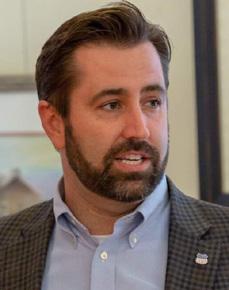

TJ England, CR England - Global Transportation
Marlise Fisher, WaFd Bank
Theresa Foxley, EDCUtah
Elizabeth Garbe, United Way of Salt Lake
Mark Gaspers, Boeing Company
Jevon Gibb, Salt Lake County
Sarah Gonzales, Delta Air Lines
Jeremy Hafen, Clyde Companies, Inc.
Jonathan Hafen, Parr Brown Gee & Loveless
Brandon Hale, Clyde Companies, Inc.
Amanda Hansen, The Larry H. Miller Company
Jared Hoskins, Strong Connexions
Spencer Jenkins, Utah System of Higher Education
Peter Jenks, Office of Congressman Blake Moore
Utah 1st District
Jace Johnson, Adobe Systems Inc.
Sara Jones, InclusionPro
Miranda Jones Cox, Wasatch Front Regional Council
Bruce Kusch, Ensign College
*Committee lists as of November 2022.
Trina Limpert, RizeNext
Kelly McAleer, The Kenney Group / PhRMA
Holly Meagher, Foxley & Pignanelli
Thomas Morgan, Zions Bank
John Neville, SILAC Insurance Company
Shawn Newell, Waves Consulting
Sterling Nielsen, Mountain America Credit Union
Cloe Nixon, Dorsey & Whitney
Todd Pauley, Boeing Company
Rhonda Perkes, Office of Congressman Chris Stewart
Utah 2nd District
Jason Perry, University of Utah Government Relations
Frank Pignanelli, Foxley & Pignanelli
Dave Smith, Penna Powers
Jennifer Somers, Comcast Business
Michael Squires, UAMPS (Utah Associated Municipal Power Systems)
Steve Styler, Foxley & Pignanelli
Shelly Teuscher, Parsons Behle & Latimer
Natalie Tippets, University of Utah Government Relations
Eliana White, SelectHealth Troy Williams, Equality Utah
2023 PUBLIC POLICY GUIDE 14
Nathan Anderson
Benjamin Brown
Co-Chairs
Josh Brown
Co-Chairs
POLICY ADVISORY COMMITTEES
DIVERSITY COUNCIL
The Salt Lake Chamber is part of a national initiative to address inequality of opportunity. Our objective is that diversity and inclusion become more than just a movement. We will work together to ensure change that appropriately reflects the dynamic culture of Utah and continues to open opportunities for everyone. The business community has a critical role and responsibility in this effort. For this reason, the Chamber, in partnership with the Utah Black Chamber, began convening a series of webinars, symposiums and roundtables focused on discussions around the issues of racism, equality and inclusion in business.
Sui Lang L. Panoke
Committee
Justin Anthony, Office of Senator Mike Lee
Edward Bennett, Suazo Business Center
Amanda Covington, The Larry H. Miller Company
Renae Cowley, Foxley & Pignanelli
Lisa Duckworth, State Of Utah
Natalie El-Deiry, Governor’s Office of Economic Opportunity
 Shawn Newell
Shawn Newell
Kyle Ford, Arbiter Sports
Stephanie Frohman, EDCUtah
Elizabeth Garbe, United Way of Salt Lake

James Jackson III, UAACC Charitable Foundation
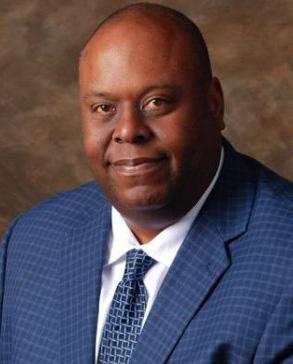
Brooke Johnson, Ivanti
Sara Jones, InclusionPro
Poonam Kumar, Rio Tinto Kennecott
Leah Lobato, Utah State Office of Rehabilitation
Holly Meagher, Foxley & Pignanelli
Kate Moss, Bank of America
Shawn Newell, Waves Consulting
Sui Lang L. Panoke, Zions Bancorporation
Rhonda Perkes, Office of Congressman Chris Stewart Utah 2nd District
Andria Peterson, Roseman University of Health Sciences
Frohman
Gary Porter, Deseret Management Corporation
Jennifer Robinson, University of Utah Kem C. Gardner Policy Institute
Ross Romero, Inclusion Strategies
Jason Thompson, Western Governors University
Troy Williams, Equality Utah
*Committee lists as of November 2022.
15 SALT LAKE CHAMBER
Stephanie
FINANCE COMMITTEE
Utah continues to be a pro-business state, and this committee is a gathering place for those with interests in doing business in Utah as well as discussing policy strategies about how to keep this state both business and consumer-friendly. This public policy committee analyzes and recommends legislative and public policy positions on issues concerning taxation policy, state and local fiscal matters and their impact on business costs and business competitiveness.
CommitteeDavid Andersen, UMB Bank
Justin Anthony, Office of Senator Mike Lee
Max Backlund, Lumen
Darin Birch, Wells Fargo
Jacob Bowman, American United Federal Credit Union
Benjamin Brown, Fidelity Investments
Brennen Brown, D.A. Davidson
Rob Carpenter, Altabank
John Evans, Mountain West Small Business Finance
Theresa Foxley, EDCUtah
Alison Fuller, Canopy
George Goates, RTW Management Inc
Kay Hall, Zions Bank
Branden Hansen, Bank of Utah
Michelle Hansen, CBRE
Shane London, Deseret First Credit Union
Adam Macklin, PNC Bank
Dane Margetts, WaFd Bank
Ryan McMahon, JP Morgan Chase
Holly Meagher, Foxley & Pignanelli
Ryan Meyer, Clyde Companies, Inc.
Thomas Morgan, Zions Bank
Kate Moss, Bank of America
Sterling Nielsen, Mountain America Credit Union
Eunicia Peret, Empowered Financial Planner
Rhonda Perkes, Office of Congressman Chris Stewart
Utah 2nd District
Frank Pignanelli, Foxley & Pignanelli
Adam Posey, Squire & Company, PC
Finn Robbins, KeyBank of Utah
Rhett Roberts, LoanPro
Thayne Shaffer, America First Credit Union
Richard Skidmore, Cache Valley Bank
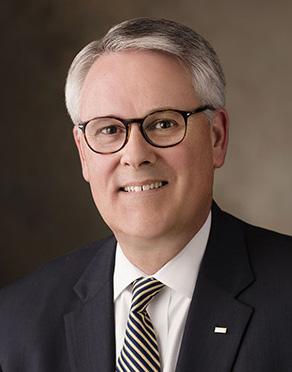
David Stahl, Hillcrest Bank
Chris Tillack, Sunwest Bank
Drew Yergensen, KeyBank of Utah
2023 PUBLIC POLICY GUIDE 16
Thomas Morgan
Chair
POLICY ADVISORY COMMITTEES
HEALTH CARE/LIFE SCIENCES COMMITTEE
The Chamber’s Health Care/Life Science Committee is made up of large, medium and small employers from the health care industry. This group tackles tough legislative issues and promotes business-friendly public policy. The Health Care Committee analyzes and recommends legislative and public policy positions on matters related to employer-sponsored health care.
The committee examines the impact of proposed health care legislation on businesses in Utah. It makes recommendations for policies that improve the availability of cost and quality information for health care consumers while opposing government interference with, and mandates on, the provision of health care by businesses.
Committee
Justin Anthony, Office of Senator Mike Lee
Verna Askwig, Wadsworth Development Group
Scott Barlow, Revere Health
Erin Barry, Merit Medical Systems, Inc.
David Bearss, Halia Therapeutics
Jared Bearss, Halia Therapeutics
Marc Bennett, Comagine Health
Doug Boudreaux, Regence BlueCross BlueShield of Utah
Jeff Brunken, MGIS
Terry Buckner, The Buckner Company
Josh Caldwell, Mortenson
Brook Carlisle, American Cancer Society Cancer Action Network, Inc.
JD Cleary, LegUp Health
Mark Cotter, Ray Quinney & Nebeker
Amanda Covington, The Larry H. Miller Company
Renae Cowley, Foxley & Pignanelli
Kelvyn Cullimore, BioUtah
Sue Devereaux, Insperity, Inc.
Suzie Draper, Intermountain Healthcare
Rebecca Dutson, The Children’s Center Utah
Lynda England, Comagine Health
Stephen Foxley, Regence BlueCross BlueShield of Utah
Elizabeth Garbe, United Way of Salt Lake
Adam Gardiner, Pharmaceutical Care Management Association (PCMA)
Christian Gardner, Gardner Company
Dave Gessel, UHA, Utah Hospital Association
Paul Glauser, Staker Parson Materials & Construction
Kelly Harris, Harris Financial Utah
Steven Hayworth, University of Utah Health
Becki Holt, Revere Health
Greg Johnson, Intermountain Healthcare
Sandra Jones, Granger Medical Group
Sherry Jones, Joyce University of Nursing and Health Sciences
Dashiel Kulander, Boojum Group
Monnica Manuel, RSG Performance
Shanna Marchant, Cigna
Kelly McAleer, The Kenney Group / PhRMA
Janet Metcalf, The Buckner Company
Donna Milavetz, Regence BlueCross BlueShield of Utah
William Moreton, Moreton & Company
Jon Murray, The Buckner Company
Steve Neeleman, HealthEquity
Jeffery Nelson, Jeffery R. and Katie C. Nelson Foundation
Mark Newman, Nomi Health
Scott Parson, Staker Parson Materials & Construction
Rhonda Perkes, Office of Congressman Chris Stewart Utah 2nd District
Frank Pignanelli, Foxley & Pignanelli
Rachel Reimann, SelectHealth
Robyn Reynolds, University of Utah
Sarah Jane Richard, Cigna
Kathleen Roth, Waterstone Financial Services

Dalyon Ruesch, Vitalpax
David Russell, Unistar Technologies
Mikhail Shneyder, Nightingale College
Vanya Slagowski, Rio Tinto Kennecott
Douglas Smith, Cigna
Tonia Sorrell-Neal, Pharmaceutical Care Management Association (PCMA)
LaDawn Stoddard, UServeUtah

Shelly Teuscher, Parsons Behle & Latimer Steven Tyler, Holland & Hart, LLP
Joseph Walker, Advanced Health Care Heather Wall, LDS Hospital Mark Ward, University of Utah
Zac Watne, University of Utah Health Jeremy Wells, Roseman University of Health Sciences
Brian Zehnder, Exodus Healthcare Network
17 SALT LAKE CHAMBER
Erin Barry
Kelly McAleer
Co-Chairs
*Committee lists as of November 2022.
HOUSING GAP COALITION
The Housing GAP Coalition’s goal is to ensure that the American Dream is kept alive for all Utahns by providing access to a variety of housing types for all income groups and closing the gap between housing units and households. The coalition brings together the state’s brightest minds from the broader business community, academia and government to tackle this housing crisis.
Committee
Eric Allen, Zonda
David Andersen, UMB Bank
Justin Anthony, Office of Senator Mike Lee
David Bailey, Destination Homes
Nate Boyer, The Boyer Company
Katelyn Brenner, Equihome Mortgage
Ari Bruening, Envision Utah
Terry Buckner, The Buckner Company
Wade Budge, Snell & Wilmer L.L.P.

Colby Dailey, Intermountain Health care
Rocky Derrick, Taylor Derrick Capital
Lisa Duckworth, State Of Utah
Ross Ford, Utah Home Builders Association
Michael Gallegos, Salt Lake County
Chris Gamvroulas, Ivory Homes
Shaleane Gee, Zions Bank
Barry Gittleman, Hamlet Homes
Andrew Gruber, Wasatch Front Regional Council
Matt Hansen, PEG Companies
Wendy Hansen, Penna Powers
Shane Herbert, Bureau One
Ted Hill, Eide Bailly, LLP
Clark Ivory, Ivory Homes
Cate Klundt, Utah Association of Realtors
Ted Knowlton, Wasatch Front Regional Council
Christopher Kyler, Utah Association of Realtors
Peggy McDonough, MHTN Architects, Inc.
Holly Meagher, Foxley & Pignanelli
Keith Moore, University of Utah
Rod Newman, Metro National Title
Sterling Nielsen, Mountain America Credit Union
Mike Ostermiller, Utah Association of Realtors
Tami Ostmark, Hamlet Homes
Chris Parker, Giv Group
Michael Parker, Ivory Homes
Scott Parson, Staker Parson Materials & Construction
Rhonda Perkes, Office of Congressman Chris
Stewart Utah 2nd District
Amy Pollock, Ivory Homes
Angela Price, Salt Lake City Corp.
Paul Smith, Utah Apartment Association
Skylar Tolbert, Ivory Homes
Jeffrey Warr, PEG Companies
Elizabeth Weight, Utah Department of Transportation
Bryce Whiting, Habi
James Wood, University of Utah Kem C. Gardner Policy Institute
Mack Woodbury, Woodbury Corporation
Thomas Wright, Summit Sothebys International
Realty
Bryan Wrigley, Lotus Company
Darin Zwick, Zwick Construction Company

2023 PUBLIC POLICY GUIDE 18
Co-Chairs
Sterling Nielsen
Terry Buckner
POLICY ADVISORY COMMITTEES
INFRASTRUCTURE COUNCIL
The Infrastructure Council is a group of business and civic leaders working together to protect Utah’s environment, improve the economy and preserve our quality of life through strategic infrastructure investments. The Council specifically advocates for responsible infrastructure investments to keep Utah’s economy moving. This group analyzes and recommends legislative and public policy positions on a variety of issues relating to physical infrastructure including transportation (roads, bridges, rail, ports, etc.), water, sewer and logistics.
Committee
Nathan Anderson, Union Pacific Railroad
Lucy Andre, Stadler US Inc.
Justin Anthony, Office of Senator Mike Lee
Max Backlund, Lumen
Brian Barton, Jones & DeMille Engineering
Jason Beardall, England Logistics Inc.
Shule Bishop, Utah Transit Authority
Julie Bjornstad, Wasatch Front Regional Council
Brandon Blanchard, Whitaker Construction Co., Inc.
Shannon Bond, WSP USA, Inc.
Jacob Brace, Google Fiber
Josh Brown, Rio Tinto Kennecott
Jill Burton, Dominion Energy
Josh Caldwell, Mortenson
Megan Callister, David Evans and Associates, Inc.
Carlton Christensen, Utah Transit Authority
Renae Cowley, Foxley & Pignanelli
Josey Dewsnup, Ash Grove Cement Company
Cameron Diehl, Utah League of Cities and Towns
Mark Droubay, Double D Distribution
Leif Elder, Utah Department of Transportation
Gary Ellis, Jacobsen Construction Company
TJ England, CR England - Global Transportation
Jason Fowler, Air & Sea International Freightlink
Joey Gilbert, Associated General Contractors
George Goates, RTW Management Inc
Sarah Gonzales, Delta Air Lines
Jake Goodliffe, Staker Parson Materials & Construction
Chad Nielsen, MHTN Architects, Inc.
Brian Parker, MHTN Architects, Inc.
Scott Parson, Staker Parson Materials & Construction
Andrea Pearson, Wasatch Front Regional Council
Rhonda Perkes, Office of Congressman Chris Stewart
Utah 2nd District
Helen M. Peters, AICP MPA, Salt Lake County
Mark Peterson, MHTN Architects, Inc.
Robert Pinon, MHTN Architects, Inc.
Nathan Rafferty, Ski Utah
Luigi Resta, rPlus Energies
Martin Ritter, Stadler US Inc.
Dalyon Ruesch, Vitalpax
Reed Ryan, The Utah Asphalt Pavement Association
Nick Schou, Western Resource Advocates
Dave Smith, Penna Powers
Michael Smith, American Council of Engineering Companies

Greg Stockhoff, Adobe Systems Inc.
Steve Styler, Foxley & Pignanelli
Brad Sweet, Granite Construction Company
Holly Sweeten, Office of Congressman Burgess
Owens Utah 4th District
Rachel Taft, MHTN Architects, Inc.
Richard Thorn, Associated General Contractors
Lisa Tuck, HDR Engineering, Inc.
Mike Vela, HKS Architects, Inc
Ellen Winkler, Q Factor
Geoff Green, Rio Tinto Kennecott

Andrew Gruber, Wasatch Front Regional Council
Jeffrey Guy, Ash Grove Cement Company

Jeremy Hafen, Clyde Companies, Inc.
Whitaker Irvin, Q Hydrogen Solutions Corporation
Peter Jenks, Office of Congressman Blake Moore
Utah 1st District
Alex Johnson, Office of Congressman Burgess
Owens Utah 4th District
Nathaniel Johnson, Office of Congressman Burgess
Owens Utah 4th District
Miranda Jones Cox, Wasatch Front Regional Council
Michelle Larsen, Utah Transit Authority
Adam Macklin, PNC Bank
Peggy McDonough Jan, AIA, MHTN Architects, Inc.
Kimberly McKinley, UTOPIA Fiber
Andrea Young, Wheeler Machinery Co. *Committee lists as of November 2022.
19 SALT LAKE CHAMBER
Lew Cramer
TJ England
Co-Chairs
Jeremy Hafen
NATURAL RESOURCES BUSINESS COUNCIL
(NRBC)
The Natural Resources Business Council analyzes and recommends legislative and public policy positions concerning the many environmental laws and regulations that impact business in Utah. The committee develops policy statements for the Chamber in the areas of air, water and land quality to be presented to the various environmental boards and legislative committees.
Committee
Lucy Knight Andre, Stadler US Inc.
Justin Anthony, Office of Senator Mike Lee
Krista Arthur, SoFi
Robert Behunin, R&R Partners
Vicki Bennett, Salt Lake City Corp.
Kelsey Berg, Office of Senator Mitt Romney
Mike Bernier, Swire Coca-Cola, USA
Kip Billings, Wasatch Front Regional Council
Elias Bishop, Vanguard Consulting
Tammie Bostick-Cooper, Utah Clean Cities
Laura Briefer, Salt Lake City Corp.
Josh Brown, Rio Tinto Kennecott
Sterling Brown, Utah Farm Bureau Federation
Ari Bruening, Envision Utah
Jill Burton, Dominion Energy
James Campbell, Rocky Mountain Power
Thom Carter, Rocky Mountain Power
Paulette Cary, Bonneville Media Group
Dani Cepernich, Snow Christensen and Martineau
Curtis Chisholm, Integrated Energy Companies
Amy Christensen, Jacobsen Construction Company
Steven Christiansen, Parr Brown Gee & Loveless
Brad Christofferson, Clyde Companies, Inc.
Christopher Collard, Utah Foundation

Shelly Cordon Teuscher, Parsons Behle & Latimer
Mike Dalley, Staker Parson Materials & Construction
Jeff Davis, Barr Engineering Company
Robert Densley, Smart Rain
Mike DeVries, Metropolitan Water District of Salt Lake & Sandy
Quinn Dietlein, Hale Centre Theatre
Denise Dragoo, Snell & Wilmer L.L.P.
Stephanie Duer, Salt Lake City Corp.
Meghan Dutton, Wheeler Machinery Co.
Kevin Emerson, Utah Clean Energy
Bart Forsyth, Jordan Valley Water Conservancy District
Michael Franz, Stadler US Inc.
Kim Frost, UCAIR

Christian Gardner, Gardner Company
Richard Garlish, Rocky Mountain Power
John Gefferth, Barr Engineering Company
George Goates, RTW Management Inc
Andrew Gruber, Wasatch Front Regional Council
Amy Hansen, Purestream Services
Joe Havasi, Compass Minerals
David van Hees, Rio Tinto Kennecott
Rikki Hrenko-Browning, Utah Petroleum Association
Whitaker Irvin, Q Hydrogen Solutions Corporation
Peter Jenks, Office of Congressman Blake Moore Utah 1st District
Natalie Kaddas, Kaddas Enterprises Inc.
Dennis Klaus, Salt Lake Community College
Rich Lambert, Wells Fargo
Brittany Manookin, The Exoro Group
Eric Marble, Chanshare Farms
Alan Matheson, The Point of the Mountain State Land Authority
Kimberly McKinley, UTOPIA Fiber
Corey Mead, Barr Engineering Company
Rob Moore, Big-D Construction Corp.
Alex Moyes, Dominion Energy
Adam Murdock, Jacobs
Peter Nelson, Salt Lake City Corp.
Sophia Nicholas, Salt Lake City Corp.
Brett Nielsen, Whitaker Construction Co., Inc.
Stephanie Pack, EDCUtah
Beverly Parry, Jordan Valley Water Conservancy District
Scott Parson, Staker Parson Materials & Construction
Scott Paxman, Weber Basin Water Conservancy District
Rhonda Perkes, Office of Congressman Chris Stewart Utah 2nd District
Nathan Rafferty, Ski Utah
Blaine Rawson, Ray Quinney & Nebeker
Luigi Resta, rPlus Energies
Mike Rowberry, Wadsworth Development Group
Stephen Sands, Rio Tinto Kennecott
Steve Schnoor, Rio Tinto Kennecott
Gene Shawcroft, Central Utah Water Conservancy District
Matt Sibul, Stadler US Inc.
James Sloan, Swire Coca-Cola, USA
Justin Smart, Penna Powers
Brandy Smith, Utah Clean Energy
Dave Smith, Penna Powers
Michael Smith, American Council of Engineering Companies
Brian Somers, Utah Mining Association
Steve Styler, Foxley & Pignanelli
Shawn Teigen, Utah Foundation
Barbara Tharp, Comcast Business
Chris Tillack, Sunwest Bank
Roma Tullis, Barr Engineering Company
Brad Wardle, Orbit Irrigation Products, Inc.
Gary Webster, Office of Congressman Chris Stewart Utah 2nd District
Amy Wildermuth, University of Utah
Brian Wilkinson, Wilkinson Ferrari & Co.
Jody Williams, Holland & Hart, LLP
Devin Wiser, Utah State University
Sarah Wright, Utah Clean Energy
2023 PUBLIC POLICY GUIDE 20
Lucy Knight Andre
Co-Chairs
Dave Smith
Co-Chairs
POLICY ADVISORY COMMITTEES
PROFESSIONAL SERVICES COMMITTEE
The Professional Services Committee analyzes and recommends legislative and public policy positions in the broad area of professional services to include lawyers, architects, accountants, engineers and other professionals to improve the competitiveness of Utah’s business climate.
Shelly Cordon Teuscher
Committee
Jesse Allen, GSBS Architects
Justin Anthony, Office of Senator Mike Lee
Brian Barton, Jones & DeMille Engineering
Megan Callister, David Evans and Associates, Inc.
Blake Christian, Holthouse Carlin Van Trigt LLP (HCVT)
JD Cleary, LegUp Health
Jill Coil, CoilLaw
Howard Cooke, Gardner Company
Shelly Cordon Teuscher, Parsons Behle & Latimer
Jason Englund, Bonneville Media Group
Brian Epperson, Target River
Chesley Erickson, HEB Business Solutions
Montana Hadley, Eide Bailly, LLP
Jonathan Hafen, Parr Brown Gee & Loveless
D. Scott Henriksen, GSBS Architects
Peggy McDonough Jan, AIA, MHTN Architects, Inc.
Todd Jensen, HNTB Corporation
Brooke Johnson, Ivanti
Karin Larson, Holthouse Carlin & Van Trigt LLP (HCVT)
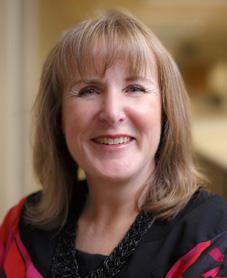

McKayla Kreutzkamp Magleby, BW Productions
Monnica Manuel, RSG Performance
Mark Murdock, Gardner Company
Chad Nielsen, MHTN Architects, Inc.
Brian Parker, MHTN Architects, Inc.
Rhonda Perkes, Office of Congressman Chris Stewart Utah 2nd District
Kevin Peterson, WCF Insurance
Mark Peterson, MHTN Architects, Inc.
Robert Pinon, MHTN Architects, Inc.
Marc Rasich, Greenberg Traurig, LLP
Alisa Robinson, Spherion
Ross Romero, Inclusion Strategies
Susan Spiers, Utah Association of CPAs
Rachel Taft, MHTN Architects, Inc.
Melanie Vartabedian, Ballard Spahr
Brent Wilhite, Penna Powers
Ellen Winkler, Q Factor
*Committee lists as of November 2022.
21 SALT LAKE CHAMBER
Peggy McDonough Jan, AIA
TECH COMMITTEE
The Tech Committee is a collaboration of public-private partners that aims to further the Chamber’s objective to bring businesses and lawmakers together, educate on the efforts of technology and cybersecurity initiatives to strengthen education and awareness in Utah’s business community and provide leadership and support to the broader community. The Tech Policy Committee analyzes and advocates legislative policy positions so Utah’s technology companies, entrepreneurs and innovation can better thrive.
Committee
Nate Allphin, Eide Bailly, LLP
Brad Anderson, TechBridge Inc.
Justin Anthony, Office of Senator Mike Lee
Max Backlund, Lumen
Sean Bair, Nouri
Davis Bell, Canopy
Chris Bleak, RRJ Consulting
Chris Boyle, Global Access, LLC
Jacob Brace, Google Fiber
Rebecca Butler, Amazon
Cheryle Caplinger, Utah Tech University
Jill Coil, CoilLaw
Shelly Cordon Teuscher, Parsons Behle & Latimer
Renae Cowley, Foxley & Pignanelli
Ingolf de Jong, GENCOMM

Earl Foote, Nexus IT Consultants
Kyle Ford, Arbiter Sports
Shane Herbert, Bureau One
Reuben Holdaway, Convoi Ventures
Jared Hoskins, Strong Connexions
Jackson Isiko, CMIT Solutions
Brooke Johnson, Ivanti
Trina Limpert, RizeNext Eric Lo, Krado
Rhonda Perkes, Office of Congressman Chris Stewart
Utah 2nd District
Gladymir Philippe, Kado, Inc.
Jason Roberts, Venafi, Inc.
Rhett Roberts, LoanPro
Jennifer Somers, Comcast Business
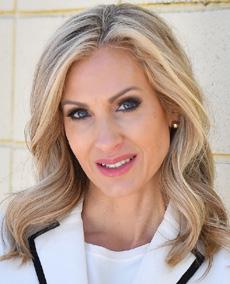
Josh Webber, Big Red Jelly
Zach Webber, Big Red Jelly
Ben Williams, Dental Select
2023 PUBLIC POLICY GUIDE 22
Trina Limpert
Davis Bell
Co-Chairs
Co-Chairs
POLICY ADVISORY COMMITTEES
WORKFORCE COMMITTEE
The Workforce Committee is a group of business and civic leaders working together to facilitate a vision for businesses to create and advance policies that enable lawmakers to create a strong workforce development system for Utah. The Workforce Policy Committee analyzes and recommends legislative and public policy positions spanning the full continuum of Utah’s talent pipeline. The committee advocates for policies and practices that promote greater collaboration and coordination across Utah’s workforce development systems in alignment with the needs of employers and the state’s economy.
Committee
Paul Ahlstrom, IsoTalent Inc.
Ben Anderson, Amazon
Justin Anthony, Office of Senator Mike Lee
Bruce Bingham, Hamilton Partners

Shule Bishop, Utah Transit Authority
Jacob Brace, Google Fiber
Ari Bruening, Envision Utah
Veronica Cavanagh, Salt Lake City Corp.
Carlton Christensen, Utah Transit Authority
Noelle Cockett, Utah State University
Bill Crim, United Way of Salt Lake
Ingolf de Jong, GENCOMM
Sydnee Dickson, Utah State Office of Education
Beth Dobkin, Westminster College
Lisa Duckworth, State Of Utah
Matthew Durham, Dorsey & Whitney
Rebecca Dutson, The Children’s Center Utah
Natalie El-Deiry, Governor’s Office of Economic Opportunity
TJ England, CR England - Global Transportation
Brian Epperson, Target River
Kim Frost, UCAIR
Jevon Gibb, Salt Lake County
Sarah Gonzales, Delta Air Lines
Kay Hall, Zions Bank
Vic Hockett, Governor’s Office of Economic Opportunity
Clark Ivory, Ivory Homes
Alex Johnson, Office of Congressman Burgess Owens Utah 4th District
Nathaniel Johnson, Office of Congressman Burgess Owens Utah 4th District
Malissa Jones, Utah System of Higher Education
Patricia Jones, Women’s Leadership Institute
Amanda Kinnersley, America First Credit Union
Bruce Kusch, Ensign College
Robb Lifferth, IsoTalent Inc.
Trina Limpert, RizeNext
Ryan Mack, Visit Salt Lake, The Convention and Visitors Bureau
Jonathan Malan, IsoTalent Inc.
*Committee lists as of November 2022.
Danny Mangum, Mountain West Small Business Finance
Brad Mortensen, Weber State University
Kate Moss, Bank of America
Jeff Palmer, Layton Construction Company
Michael Parker, Ivory Homes
Rhonda Perkes, Office of Congressman Chris Stewart Utah 2nd District
Andria Peterson, Roseman University of Health Sciences
Gladymir Philippe, Kado, Inc.
Gary Porter, Deseret Management Corporation
Scott Pulsipher, Western Governors University
Lorena Riffo Jenson, Salt Lake City Corp.
Alisa Robinson, Spherion Ross Romero, Inclusion Strategies
Dalyon Ruesch, Vitalpax
Carolyn Sharette, American Preparatory Academy
Rick Skidmore, Cache Valley Bank
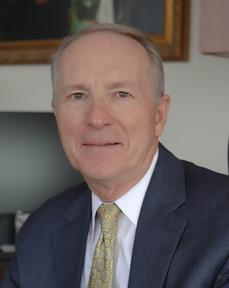
Michelle Smith, Utah Jazz Sally Steed, Deseret News
Holly Sweeten, Office of Congressman Burgess Owens Utah 4th District
Linda Wardell, City Creek Center - The Taubman Company
Annie Wilson, Ivory Homes
Jenny Wilson, Salt Lake County
Devin Wiser, Utah State University
Dave Woolstenhulme, Utah System of Higher Education
23 SALT LAKE CHAMBER
Bruce Kusch
Brian Epperson
OUR TEAM WORKS FOR YOU
Our public policy team represents you before the Utah State Legislature to curb burdensome regulations, reduce taxes and create a healthy, business-friendly climate.
Also, our communications team works year-round to keep you updated and informed on news important to the Utah and national business community.
 Natalie Bowen Public Policy Coordinator
Natalie Bowen Public Policy Coordinator
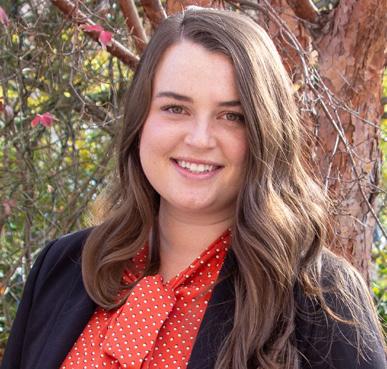 Ginger Chinn Vice President of Public Policy
Ginger Chinn Vice President of Public Policy

2023 PUBLIC POLICY GUIDE 24

A special thank you to our board, committees and industry-related roundtables for their guidance and help in shaping our legislative priorities. 201 S. MAIN STREET, SUITE 2300 SALT LAKE CITY, UT 84111 801.364.3631 | SLCHAMBER.COM



 Dr. Donna Milavetz Board Chair
Dr. Donna Milavetz Board Chair
 Sincerely,
Sincerely,











 Amanda Covington Public Policy Co-Chair
Amanda Covington Public Policy Co-Chair




 Shawn Newell
Shawn Newell


















 Natalie Bowen Public Policy Coordinator
Natalie Bowen Public Policy Coordinator
 Ginger Chinn Vice President of Public Policy
Ginger Chinn Vice President of Public Policy

